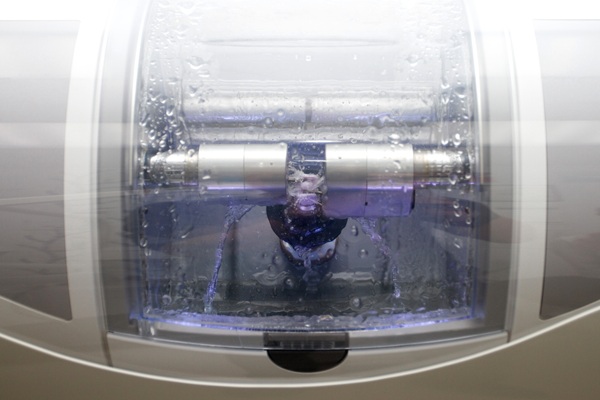What Happens After Root Canal Therapy

A root canal is typically the best choice to relieve pain, preserve the tooth, and restore function when inflammation or infection in the fragile inner pulp of a tooth occurs. The dentist will do their best to offer a pain-free root canal operation, ensuring that you are comfortable and calm during the process. So, the only thing that you need to be concerned about is the pain of dental decay.
After a root canal
After the root canal treatment, patients will need to make another dental appointment to complete the tooth repair. With proper care, a repaired tooth may survive as long as a natural tooth. Root canal treatment can weaken, brittle, and fracture the affected tooth. To help strengthen the weak tooth, the dentist may offer one or more of the following options.
Placement of the crown
Root canal treatment can weaken the tooth's structure and make it more prone to damage. To help strengthen it, the dentist may recommend crown placement. Patients will need one immediately if the tooth had no crown before the root canal. Removing the nerve and blood supply during a root canal procedure leaves the tooth dry and brittle. The tooth can be held together with a dental crown, which adds strength and endurance. A dental crown is an essential part of a repaired tooth's structure, ensuring its long-term viability.
The dentist makes the crown by taking impressions of the affected tooth. Pending the production of the new crown, patients will get a temporary crown to protect the tooth.
Permanent filling
The dentist will likely cut a small hole through the crown to conduct root canal treatment on a tooth that already has a crown. The dentist might fill the crown with a tooth-colored filling afterward. Patients can have a strong, natural-looking smile with composite resin fillings.
Taking good care of the teeth
In addition to aiding in the healing of root canal-treated teeth, maintaining healthy oral hygiene may help prevent more treatments in the future and safeguard other teeth against infection. Brushing and flossing the teeth at least twice a day may go a long way toward improving one's oral health. However, brushing and flossing should be done with care, so as not to irritate the affected area or upset the temporary fillings. It is also a good idea to plan regular dental checks and cleanings.
Follow the dentist's instructions
It is advisable to follow the dentist's specific recommendations to ensure a quick and painless recovery. Here is what to anticipate.
Minor pain
A root canal is a dental operation that involves the removal of dead or decayed tissue from a tooth. The region is subsequently cleaned and disinfected to eradicate all indications of infection. It is normal to suffer sensitivity, swelling, and pain following the procedure, which may last anywhere from a few days to a few weeks.
The local anesthetic administered at the beginning of the procedure should last for hours. When it wears off, tenderness or soreness might occur. Over-the-counter pain medications, such as acetaminophen or ibuprofen, may be used as a treatment.
Patients concerned about their pain threshold should speak with the dentist about medication choices. Prescription antibiotics may be required if the discomfort increases, since infection may be present.
Care for the temporary fillings and crowns
Patients may need to come back for a permanent filling or crown in certain circumstances. In that case, a temporary crown will be placed to safeguard the tooth and prevent additional harm. It is usually preferable to not chew or drink hot liquids until the anesthesia wears off, to avoid accidentally biting the lips or tongue. After the procedure, it is better to stick to soft meals for a few days.
Avoid hard or sticky foods while wearing a temporary crown to prevent the protective fixture from cracking, breaking, or coming loose, exposing the affected tooth. Chew on a different side of the mouth whenever feasible. Once the final filling or crown is set, the patient may brush and floss as usual.
In conclusion
In most cases, you can return for a follow-up appointment for a permanent filling or crown without difficulty or complications. But if you are experiencing significant discomfort, it might signify an infection. Please contact the dental office as soon as possible to address any concerns following the root canal. If your temporary crown breaks or comes loose, you should reach out immediately.
Request an appointment here: https://www.riversidefortworthdental.com or call Riverside Dental at (817) 210-4082 for an appointment in our Fort Worth office.
Check out what others are saying about our dental services on Yelp: Root Canal Treatment in Fort Worth, TX.
Recent Posts
The term root canal treatment refers to the inner chamber between the tooth roots and the pulp, and also to the dental treatment for removing infected pulp material. Tooth infections can cause severe tooth pain and often necessitate tooth extraction. With root canal treatment, a dentist may be able to save the tooth and alleviate…
Patients who are dealing with severe dental issues may think they should go to the ER for emergency dental care. This, however, is often ill-advised, as it may not be helpful in providing the proper treatments needed and can result in other problems arising.The following are a couple of reasons why patients should not go…
For dental emergencies, people can go to an emergency dentist or an emergency room. However, several things should be considered before deciding where to seek medical help. Just like any other medical emergency, dental emergencies also require different levels of care. This depends on their severity. The ideal place to go for treatment when you…
While it is always a good idea to have an emergency dentist on call, individuals can avoid a dental emergency and all the pain, cost and hassle that comes with one by taking preventative measures. In many cases, this simply entails adopting healthy lifestyle habits.Dental emergencies, which range from toothache to fractured teeth to abscesses,…


